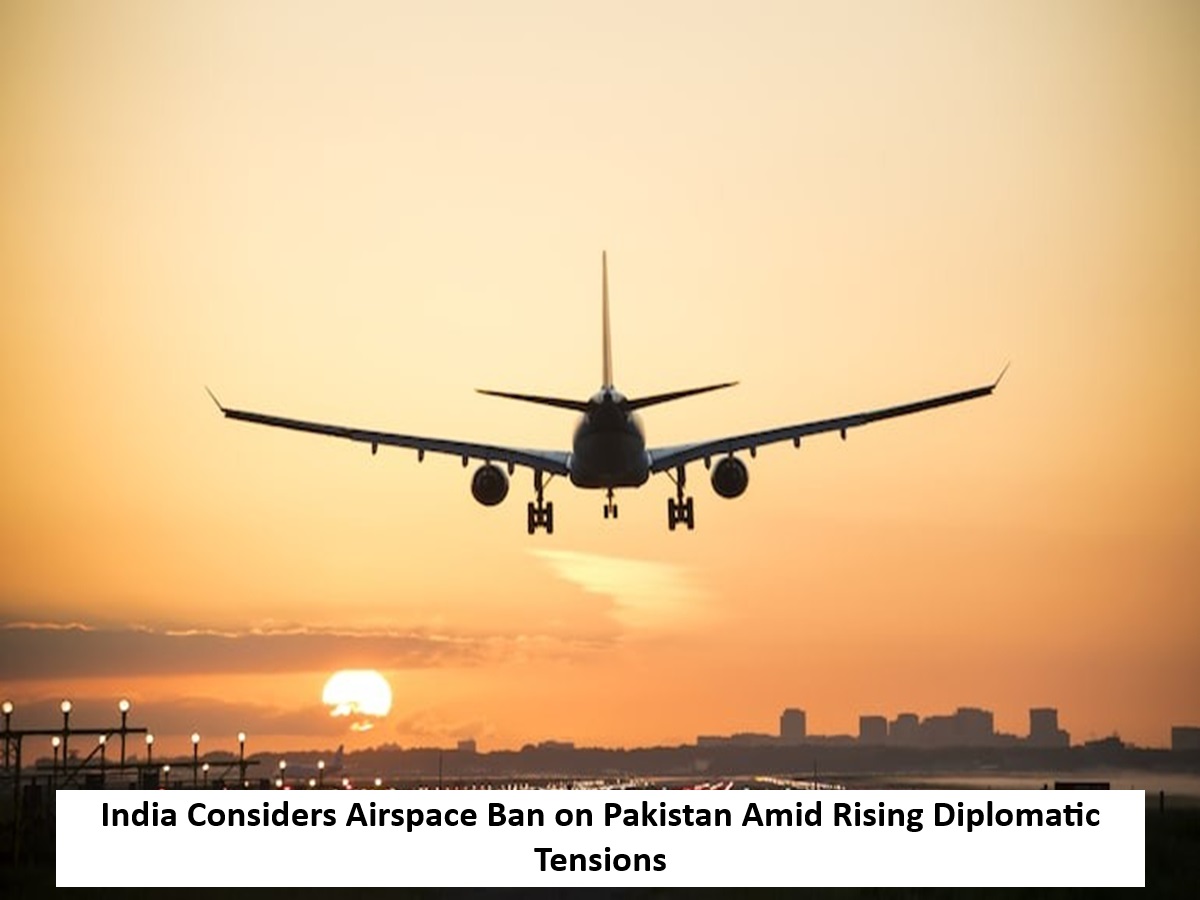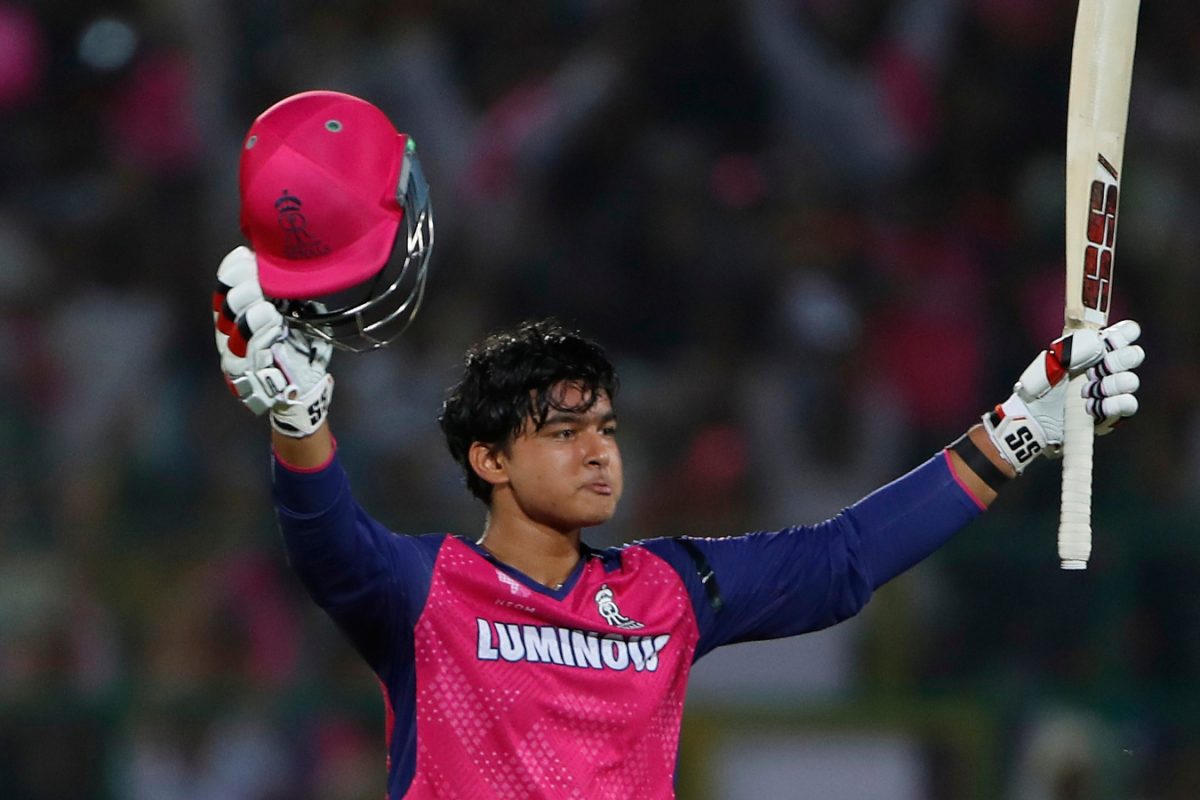AS India and Pakistan brace for a fresh round of their hop-on, hop-off military stand-off, which some say could be more grievous this time than before, the words of Noam Chomsky from 12 years ago have come into focus by their sheer prescience.“There are two problems for our species’ survival — nuclear conflict and environmental endgame,” Chomsky warned in his 2013 book Nuclear War and Environmental Catastrophe.The nuclear dimension of the threat is all too well known, but the reference to environmental catastrophe is less widely grasped.
It, nevertheless, holds great relevance for South Asia, where rivers are facing the combined adverse consequences of urbanisation, big dams arresting the flow, and snow in the lofty mountain ranges losing cover with global warming. India and Pakistan are both facing the growing twin challenge of flood and drought. A water-sharing dispute would pose a mortal crisis for one or both.

{try{this.style.height=this.
contentWindow.document.body.
scrollHeight+'px';}catch{}}, 100)" width="100%" frameborder="0" scrolling="no" style="height:250px;position:relative" src="https://www.dawn.com/news/card/1906879" sandbox="allow-same-origin allow-scripts allow-popups allow-modals allow-forms"> Also, Kashmir, claimed by three and not just two countries, has increasingly been the venue for devastating floods, the season for which is not far away.
The tragedy of Pahalgam is heartrending, but it cannot be redressed with war drums, weaponising water-sharing or spreading hate.The wider world is grappling with a potentially devastating tussle between Israel and Iran, in which both sides claim to be prepared to inflict and absorb unspeakable damage. Between the two, Iran’s Achilles’ heel may not be the overwhelming firepower of the US and Israeli alliance.
Analysts say Iran has the military wherewithal to seriously damage Israel with conventional weapons. Iran’s less-discussed challenge lies in a crippling water crisis at home. In the event of peace winning the day in the ongoing talks with the US, Iranian rulers would be quickly combating an even more intractable predicament that could turn into a political blight for the rulers.
A dispute over the Helmand river with Afghanistan lurks in the background. Water shortages have led to internal migration to northern provinces and cities around Tehran.The tragedy of Pahalgam is heartrending but it cannot be redressed with war drums.
In the 1980s, an Indian diplomat of Persian origin was travelling from Tehran to Delhi when he coined a quaint description for Dubai, where I happened to be working with a newspaper: “What are you doing in this desalinated water economy?”Akbar Khalili’s half-mocking comment flowed from Iran’s civilisational history and its neighbourhood boasting the Babylonian civilisation. Civilisations form around water. The two have fought bitter wars over their claims on Shatt al-Arab.
Israel took care of its water needs in 1967 by defeating Arab armies and subsequently expanding its reach to Syria’s Golan Heights, a water-rich region that enables Israel to brazenly export its popular brand of ‘kosher wine’. Egypt, harking to another great civilisation, is locked in tense jousting with Sudan and Ethiopia over claims on the Nile. {try{this.
style.height=this.contentWindow.
document.body.scrollHeight+'px';}catch{}}, 100)" width="100%" frameborder="0" scrolling="no" style="height:250px;position:relative" src="https://www.
dawn.com/news/card/1674696" sandbox="allow-same-origin allow-scripts allow-popups allow-modals allow-forms"> “While a nuclear strike would require action, environmental catastrophe is partially defined by wilful inaction in response to human-induced climate change,” Chomsky said in his book. “Denial of the facts is only half the equation.
Other contributing factors include extreme techniques for the extraction of remaining carbon deposits, the elimination of agricultural land for bio-fuel, the construction of dams, and the destruction of forests that are crucial for carbon sequestration.” India and Pakistan tick all boxes.“As if the crisis in the cryosphere was not enough, now we have to deal with weaponisation of water and violation of an international treaty that will destabilise the region further.
We need to address survival issues together and find solutions instead of creating new problems,” observed Pakistan’s leading environmentalist, Aisha Khan. She was commenting on X about India’s abeyance of the Indus Waters Treaty with an implied intent to divert water from Pakistan-bound rivers.Fortunately, the plan, if that is what it is, would not be fructifying anytime soon.
Pakistan has responded by cautioning India that any diversion of its share of water, if it actually happens, would be deemed an act of war. India’s options, mercifully, remain theoretical until material conditions obtain — involving prohibitive costs and a lead time of at least two decades — to actually carry out the threat. In the meantime, it has left the door open to agreeable possibilities, which can be helped along only by a resumption of talks.
A parallel view expressed in The Wire posits that Pakistan could challenge the abeyance of the treaty in the International Court of Justice.A disturbing feature of the current India-Pakistan stand-off is the heavy use of religious idiom to underpin rivalries. Here they share similarities with two other theatres of war — one raging, the other shaping.
The Ukraine-Russia conflict has witnessed the rupture of a historically common church. Ukraine passed a law in August last year to ban religious groups linked to Moscow in a move targeting the Ukrainian Orthodox Church, which the government has accused of complicity in Russia’s invasion of Ukraine.In Israel, Benjamin Netanyahu and his ruling cohorts have summoned biblical references for Palestinians as ‘Amaleks’, scriptural slur for enemies of Israel who deserved to be slaughtered.
Netanyahu later offered unconvincing explanations for the hateful remarks. {try{this.style.
height=this.contentWindow.document.
body.scrollHeight+'px';}catch{}}, 100)" width="100%" frameborder="0" scrolling="no" style="height:250px;position:relative" src="https://www.dawn.
com/news/card/1906884" sandbox="allow-same-origin allow-scripts allow-popups allow-modals allow-forms"> The Indian clamour for revenge for the insane killing of 26 tourists, primarily Hindus, in Pahalgam by terrorists believed to be Muslims has targeted Indian Muslims and Pakistan virtually interchangeably. The Jammu and Kashmir assembly had to pass a resolution to condemn the media, chiefly abusive TV channels. Joining the religious fray was the RSS chief Mohan Bhagwat.
He quoted the Ramayana to suggest that it was the duty of the king to protect his people from an evil rival.Adding to the mix was the claim in Pakistan of an abiding incompatibility between Hindus and Muslims to live together. Had that been so, the Quaid wouldn’t have vehemently opposed the partition of Bengal and Punjab, whose non-Muslim population he envisaged as equal citizens of the Pakistan of his vision.
The writer is Dawn’s correspondent in [email protected] in Dawn, April 29th, 2025.
Bracing for avoidable blunders

AS India and Pakistan brace for a fresh round of their hop-on, hop-off military stand-off, which some say could be more grievous this time than before, the words of Noam Chomsky from 12 years ago have come into focus by their sheer prescience.“There are two problems for our species’ survival — nuclear conflict and environmental endgame,” Chomsky warned in his 2013 book Nuclear War and Environmental Catastrophe.The nuclear dimension of the threat is all too well known, but the reference to environmental catastrophe is less widely grasped. It, nevertheless, holds great relevance for South Asia, where rivers are facing the combined adverse consequences of urbanisation, big dams arresting the flow, and snow in the lofty mountain ranges losing cover with global warming. India and Pakistan are both facing the growing twin challenge of flood and drought. A water-sharing dispute would pose a mortal crisis for one or both. {try{this.style.height=this.contentWindow.document.body.scrollHeight+'px';}catch{}}, 100)" width="100%" frameborder="0" scrolling="no" style="height:250px;position:relative" src="https://www.dawn.com/news/card/1906879" sandbox="allow-same-origin allow-scripts allow-popups allow-modals allow-forms"> Also, Kashmir, claimed by three and not just two countries, has increasingly been the venue for devastating floods, the season for which is not far away. The tragedy of Pahalgam is heartrending, but it cannot be redressed with war drums, weaponising water-sharing or spreading hate.The wider world is grappling with a potentially devastating tussle between Israel and Iran, in which both sides claim to be prepared to inflict and absorb unspeakable damage. Between the two, Iran’s Achilles’ heel may not be the overwhelming firepower of the US and Israeli alliance.Analysts say Iran has the military wherewithal to seriously damage Israel with conventional weapons. Iran’s less-discussed challenge lies in a crippling water crisis at home. In the event of peace winning the day in the ongoing talks with the US, Iranian rulers would be quickly combating an even more intractable predicament that could turn into a political blight for the rulers. A dispute over the Helmand river with Afghanistan lurks in the background. Water shortages have led to internal migration to northern provinces and cities around Tehran.The tragedy of Pahalgam is heartrending but it cannot be redressed with war drums.In the 1980s, an Indian diplomat of Persian origin was travelling from Tehran to Delhi when he coined a quaint description for Dubai, where I happened to be working with a newspaper: “What are you doing in this desalinated water economy?”Akbar Khalili’s half-mocking comment flowed from Iran’s civilisational history and its neighbourhood boasting the Babylonian civilisation. Civilisations form around water. The two have fought bitter wars over their claims on Shatt al-Arab. Israel took care of its water needs in 1967 by defeating Arab armies and subsequently expanding its reach to Syria’s Golan Heights, a water-rich region that enables Israel to brazenly export its popular brand of ‘kosher wine’. Egypt, harking to another great civilisation, is locked in tense jousting with Sudan and Ethiopia over claims on the Nile. {try{this.style.height=this.contentWindow.document.body.scrollHeight+'px';}catch{}}, 100)" width="100%" frameborder="0" scrolling="no" style="height:250px;position:relative" src="https://www.dawn.com/news/card/1674696" sandbox="allow-same-origin allow-scripts allow-popups allow-modals allow-forms"> “While a nuclear strike would require action, environmental catastrophe is partially defined by wilful inaction in response to human-induced climate change,” Chomsky said in his book. “Denial of the facts is only half the equation. Other contributing factors include extreme techniques for the extraction of remaining carbon deposits, the elimination of agricultural land for bio-fuel, the construction of dams, and the destruction of forests that are crucial for carbon sequestration.” India and Pakistan tick all boxes.“As if the crisis in the cryosphere was not enough, now we have to deal with weaponisation of water and violation of an international treaty that will destabilise the region further. We need to address survival issues together and find solutions instead of creating new problems,” observed Pakistan’s leading environmentalist, Aisha Khan. She was commenting on X about India’s abeyance of the Indus Waters Treaty with an implied intent to divert water from Pakistan-bound rivers.Fortunately, the plan, if that is what it is, would not be fructifying anytime soon. Pakistan has responded by cautioning India that any diversion of its share of water, if it actually happens, would be deemed an act of war. India’s options, mercifully, remain theoretical until material conditions obtain — involving prohibitive costs and a lead time of at least two decades — to actually carry out the threat. In the meantime, it has left the door open to agreeable possibilities, which can be helped along only by a resumption of talks. A parallel view expressed in The Wire posits that Pakistan could challenge the abeyance of the treaty in the International Court of Justice.A disturbing feature of the current India-Pakistan stand-off is the heavy use of religious idiom to underpin rivalries. Here they share similarities with two other theatres of war — one raging, the other shaping. The Ukraine-Russia conflict has witnessed the rupture of a historically common church. Ukraine passed a law in August last year to ban religious groups linked to Moscow in a move targeting the Ukrainian Orthodox Church, which the government has accused of complicity in Russia’s invasion of Ukraine.In Israel, Benjamin Netanyahu and his ruling cohorts have summoned biblical references for Palestinians as ‘Amaleks’, scriptural slur for enemies of Israel who deserved to be slaughtered. Netanyahu later offered unconvincing explanations for the hateful remarks. {try{this.style.height=this.contentWindow.document.body.scrollHeight+'px';}catch{}}, 100)" width="100%" frameborder="0" scrolling="no" style="height:250px;position:relative" src="https://www.dawn.com/news/card/1906884" sandbox="allow-same-origin allow-scripts allow-popups allow-modals allow-forms"> The Indian clamour for revenge for the insane killing of 26 tourists, primarily Hindus, in Pahalgam by terrorists believed to be Muslims has targeted Indian Muslims and Pakistan virtually interchangeably. The Jammu and Kashmir assembly had to pass a resolution to condemn the media, chiefly abusive TV channels. Joining the religious fray was the RSS chief Mohan Bhagwat. He quoted the Ramayana to suggest that it was the duty of the king to protect his people from an evil rival.Adding to the mix was the claim in Pakistan of an abiding incompatibility between Hindus and Muslims to live together. Had that been so, the Quaid wouldn’t have vehemently opposed the partition of Bengal and Punjab, whose non-Muslim population he envisaged as equal citizens of the Pakistan of his vision.The writer is Dawn’s correspondent in [email protected] in Dawn, April 29th, 2025










